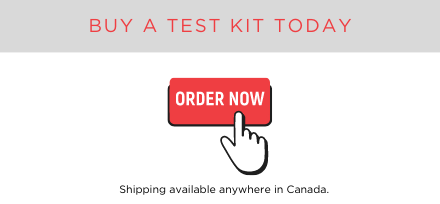Treatment for inactive TB infection
If you have inactive TB infection, there are TB bacteria in your body, but you do not have any symptoms. Inactive TB must be cured to kill the TB bacteria before it becomes active TB and makes you very sick.
Inactive TB is often treated with a medicine called isoniazid (INH). Most people are prescribed this medication daily for 9 months. Inactive TB is also treated with the medicine isoniazid (INH) for 6 months and 3 months with INH and rifampin (PMP) for 3-4 months.
It’s very important to take your TB medicine exactly as your doctor or nurse says, for as long as they say. If you stop taking your TB medicine or skip doses, these things could happen:
- Your TB infection could come back.
- Your TB infection could turn into active TB disease. With active TB, you will have symptoms and feel sick and you can pass TB on to your friends and family.
- You could accidentally make the TB germ even stronger, so your TB infection is harder to treat. This is called drug-resistant TB and it is very dangerous and it can be deadly.
Treatments for active TB infection
If you have active TB, your doctor will prescribe medicine to cure you.
To get TB medicine, you need a prescription. TB medicine and treatment are free for most people in Canada.
Some antibiotic medicines (antibiotics) can cure TB. They kill the tuberculosis germs. It usually takes two or more TB medicines to cure active TB disease.
These are the most common medicines to cure TB:
- Isoniazid (INH), also called Dom-Isoniazid®, Isotamine®, or PMS-Isoniazid®. It comes as pills or syrup.
- Rifampin (RMP), also called Rifadin® or Rofact®. It comes as pills.
- Pyrazinamide (PZA), also called PMS-Pyrazinamide® or Tebrazid®. It comes as pills.
- Ethambutol (EMB), also called Etibi®. It comes as pills.
Your doctor may put you on all four medications at first. Your doctor will decide which medicines are best for you, and how long you must take them to be cured. TB germs are hard to kill. That's why it's very important that you take all your medicine.
After you take TB medicine for a few weeks you will start to feel better and your doctor or nurse will let you know when:
- You are no longer contagious.
- You are able to return to school/work
In order to cure TB, you will need to take medicine for as long as your doctor tells you, even if you don’t feel sick.
If you stop taking you TB medicine early, these things could happen:
- You could make the TB bacteria even stronger, so your TB infection becomes very hard to treat and it could be deadly. This is called drug-resistant TB. If you have drug resistant TB, you will need to take more medicines that are expensive and have more side effects.
- Your active TB infection could come back.
- Your TB infection could get worse. The TB germ could spread to other parts of your body.
- You could spread TB to other people.
What you should know about taking TB medicines
- Take your TB medicines exactly as your doctor or nurse says, for as long as they say. Take them even if you're feeling better.
- Ask your doctor or pharmacist to explain the side effects of TB medicine. Ask them what to do if you forget to take a pill.
- Do not take the pain medicine acetaminophen (Tylenol® or another brand).
- Do not drink alcohol.
- TB medicine puts stress on your liver. So do alcohol and acetaminophen. If you take TB medicines and alcohol or acetaminophen, your liver could get sick.
- Tell your doctor about any other medicine you may be taking.
- If you get pregnant while you’re taking your TB medicine, tell your doctor. Your doctor may change your medicine.
- If you plan to become pregnant, talk with your doctor.
- Take your medicine at the same time every day. Write a note or set an alarm to remind yourself to take it.
- Keep your medicine in a place where you see it often.

